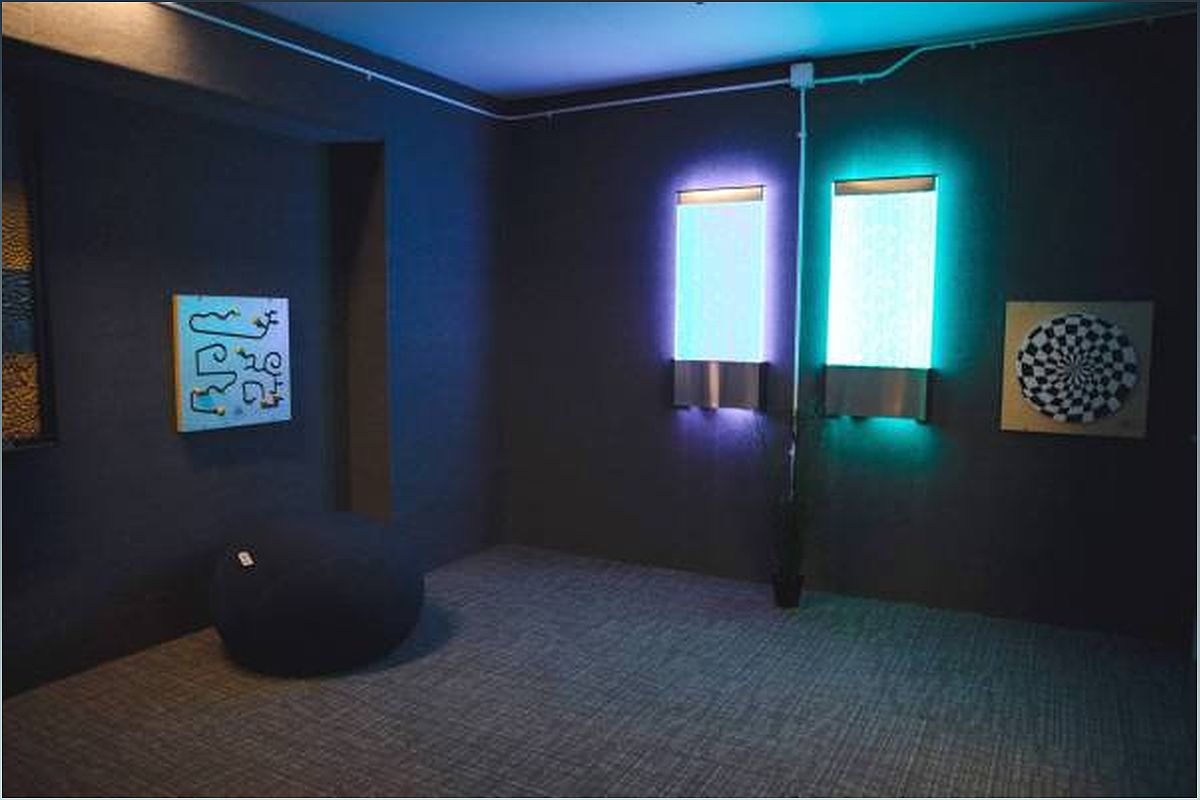Tucked away in a corner of Vancouver’s BC Place is a small yet immersive space that is designed to engulf visitors’ senses. The walls of the cool, dark room feature glowing neon panels that emit the soothing sound of flowing water. BC Place launched this sensory room in September in an effort to increase accessibility and inclusivity for all its guests. Join me as we explore the innovative approaches that Vancouver is taking to create a barrier-free future and prioritize user accessibility.
Creating Inclusive Spaces: BC Place's Sensory Room
Discover how BC Place is leading the way in creating inclusive spaces through their innovative sensory room.
Tucked away in a corner of Vancouver’s BC Place is a small yet immersive space that is designed to engulf visitors’ senses. The walls of the cool, dark room feature glowing neon panels that emit the soothing sound of flowing water. BC Place launched this sensory room in September in an effort to increase accessibility and inclusivity for all its guests.
The sensory room is a prime example of how design can positively impact individuals with disabilities. By creating a calming environment that engages multiple senses, BC Place is providing a sanctuary for those who may feel overwhelmed by the chaos outside. Visitors can interact with the interactive elements, shifting their focus from the outside world to the present moment.
This initiative aligns with Vancouver’s commitment to accessibility and inclusivity. With more than one in five people in the city having an ongoing disability, it is crucial to prioritize user accessibility in public spaces. BC Place's sensory room is a step towards a more inclusive future.
A Barrier-Free Future: Vancouver's Accessibility Movement
Explore Vancouver's growing movement towards creating a barrier-free future and prioritizing user accessibility.
Vancouver is at the forefront of the accessibility movement, with the ratification of the 2021 Accessible British Columbia Act. This mandate requires public sector organizations to form accessibility committees and prioritize inclusivity. The City of Vancouver recognizes the importance of accessibility, with over one in five people in the city having an ongoing disability.
Both government bodies and private organizations are stepping up to innovate for a barrier-free future. Kwantlen Polytechnic University's Surrey campus, for example, installed an adult changing station in its gender-neutral bathroom. This inclusive feature includes an overhead electric lift, providing meaningful access to individuals with mobility challenges.
Vancouver-based design studio HCMA is also making strides in creating inclusive spaces. They have designed accessibility-focused installations in major cities like New York City, Toronto, and Montreal, holding designers accountable for their exclusionary architecture. Their installations aim to evoke a visceral response and raise awareness about the alienation experienced by individuals with disabilities.
Innovative Assistive Products: Enhancing Accessibility
Discover the latest assistive products that are revolutionizing accessibility for individuals with disabilities.
Technology startups in Vancouver are developing innovative assistive products that are transforming the lives of individuals with disabilities. Seleste, for example, has launched smart glasses equipped with AI technology, allowing visually impaired users to share their surroundings with others. These glasses provide a new level of independence and connection.
Naqi Logix has introduced neural earbuds that enable touch-free, screen-free, and voice-free control of digital devices. This breakthrough technology empowers individuals with limited mobility to interact with their devices effortlessly. These assistive products are just a glimpse of the advancements being made in the field of accessibility.
Vancouver's commitment to innovation and inclusivity is driving the development of these assistive products, ensuring that individuals with disabilities have equal access to technology and the opportunities it brings.
Universal Design: Shaping an Inclusive Future
Learn about the philosophy of universal design and how it is shaping an inclusive future in Vancouver.
Vancouver's accessibility and design communities are embracing the philosophy of universal design. Unlike accessible design, which focuses on addressing specific barriers, universal design aims to create spaces and products that are inclusive for everyone, regardless of ability, age, or other demographics.
Universal design recognizes that when you design for one person or group with a disability, you may unintentionally create barriers for others. By prioritizing universal design principles, Vancouver is paving the way for a more inclusive future. Champions like Rick Hansen, Terry Fox, and Sam Sullivan have already made significant contributions to raising the accessibility profile of BC.
Vancouver is truly a city that embraces diversity and inclusivity, making it one of the best places in the world to live with a disability. With ongoing efforts and innovative approaches, the city continues to push boundaries and create a more accessible and inclusive society for all.

